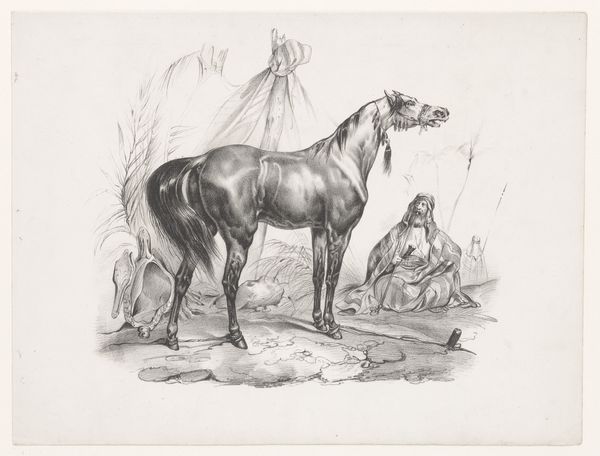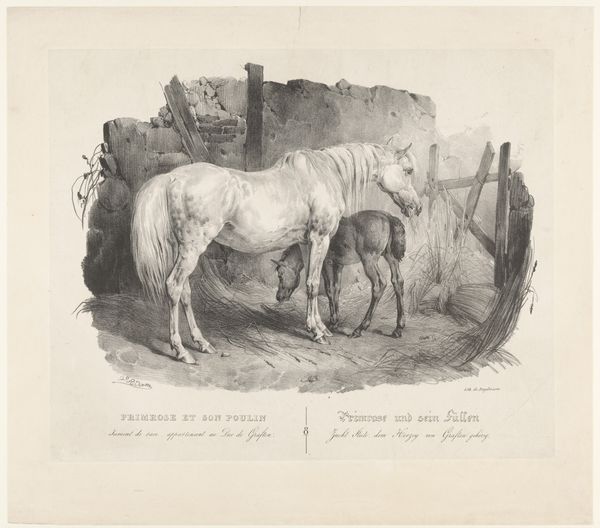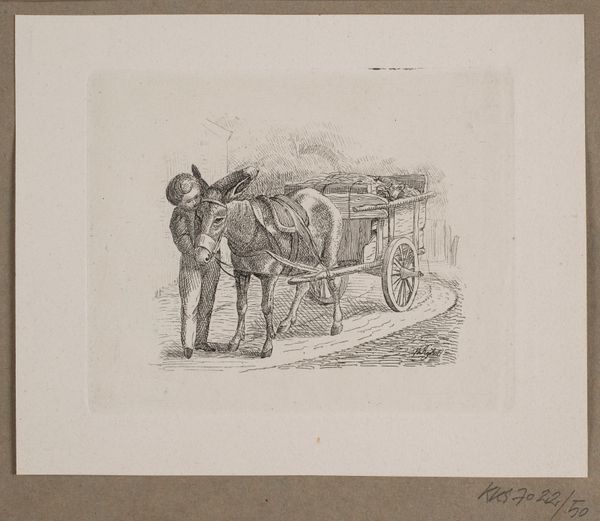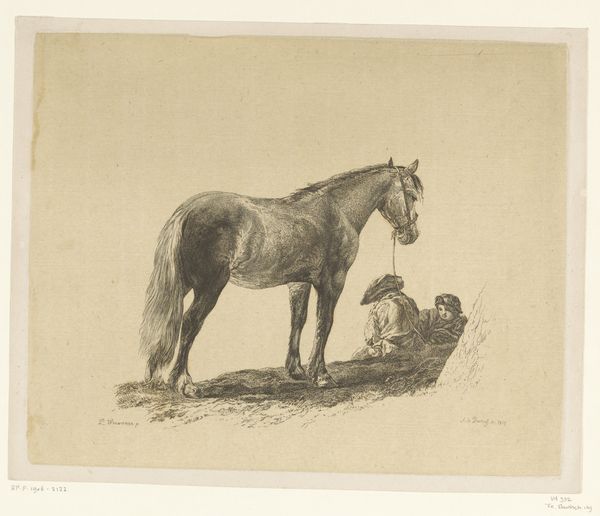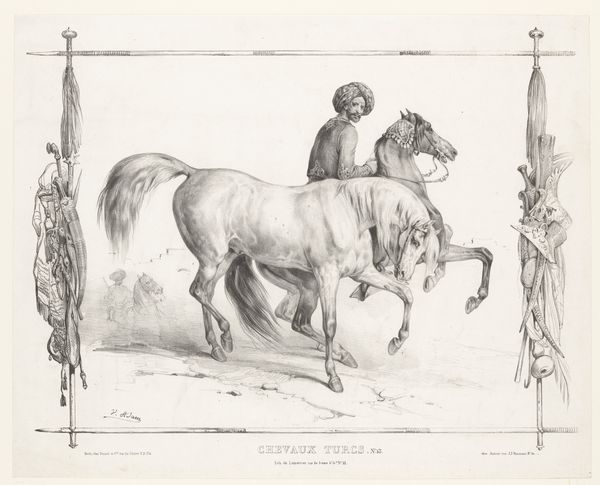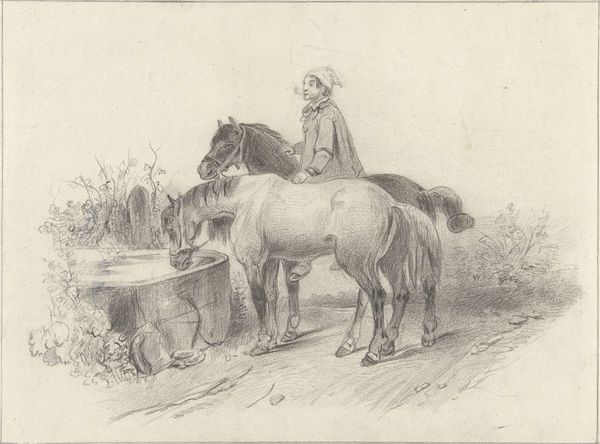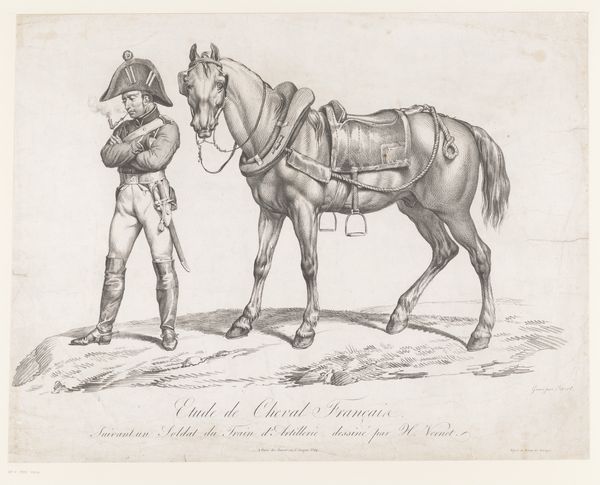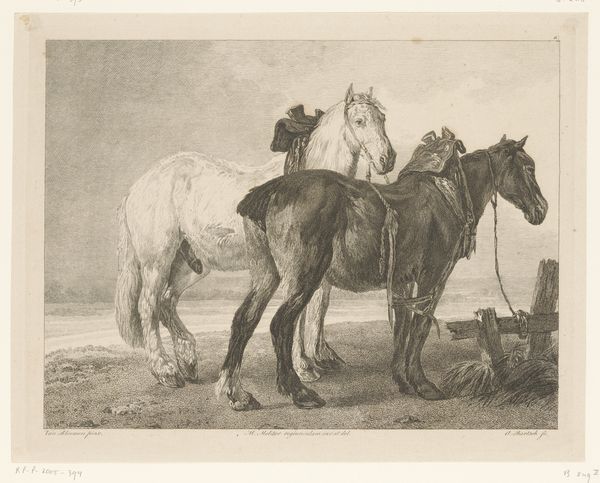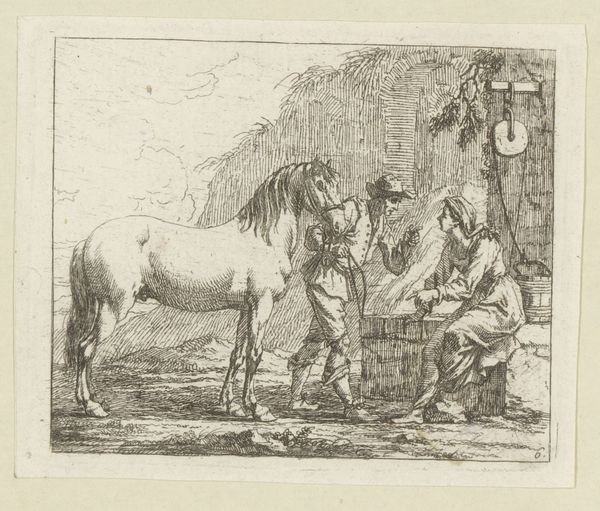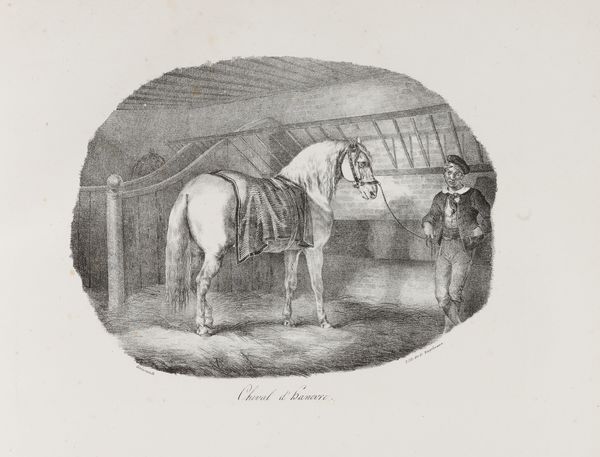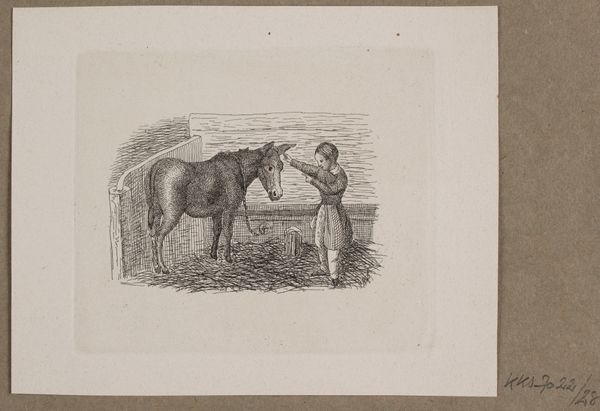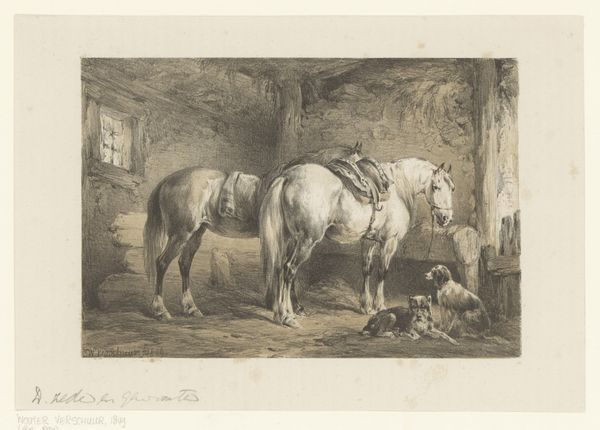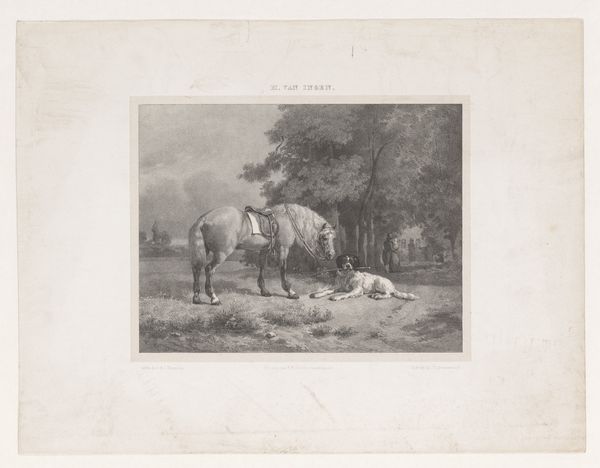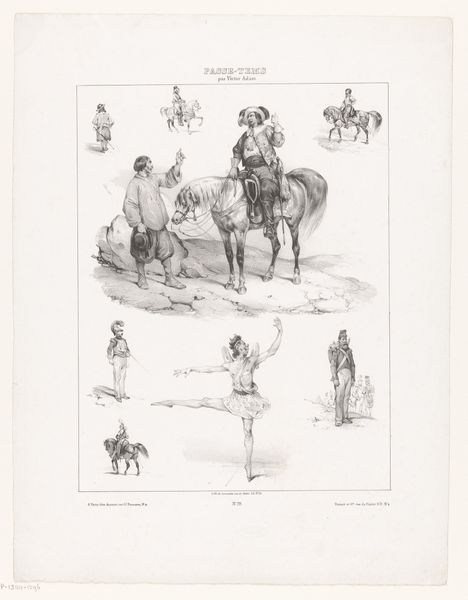
drawing, print, engraving
#
portrait
#
drawing
# print
#
figuration
#
romanticism
#
line
#
genre-painting
#
engraving
#
realism
Dimensions: height 242 mm, width 359 mm
Copyright: Rijks Museum: Open Domain
Editor: So, here we have Victor Adam’s "Courier Lighting His Pipe Next to a Horse," possibly from 1837. It's a print made using engraving and other drawing techniques. It’s really striking how the figures, both human and animal, are rendered with such clear lines. What historical narratives do you see at play here? Curator: It's a fascinating genre painting, isn't it? The Romantic era idealized rural life, often masking the harsh realities with picturesque scenes. I see the Courier as a symbol of mobility and communication, essential for burgeoning capitalism. But look closer: whose labor truly supports this idyllic scene? Editor: You mean the woman? What is she offering the Courier? Curator: Exactly! What’s on her tray? She embodies the often-invisible labor of women in that era, servicing the needs of men on the move. Think about the socio-economic power dynamics represented: The Courier can take a smoke break and a beverage while the woman serves. How might we interpret that visual language today? Editor: It makes me think about the hidden contributions of women, and how they often enable the more visible work of men. This small, seemingly simple scene actually reflects deep societal structures. Curator: Precisely. This artwork serves as a lens through which to examine gendered labor, and even questions of who history remembers and celebrates, and whose contributions are often erased. Even the backdrop of what appears to be text on a wall begs us to consider "whose stories" and "whose news" get told, amplified, or silenced. Editor: That's incredible, I would not have read that from just the visual at first glance. This really shows the power of historical and feminist lenses in art analysis. Curator: Agreed! Art is never just about what’s on the surface; it's a mirror reflecting the power dynamics and social realities of its time and how they still play out today.
Comments
No comments
Be the first to comment and join the conversation on the ultimate creative platform.
